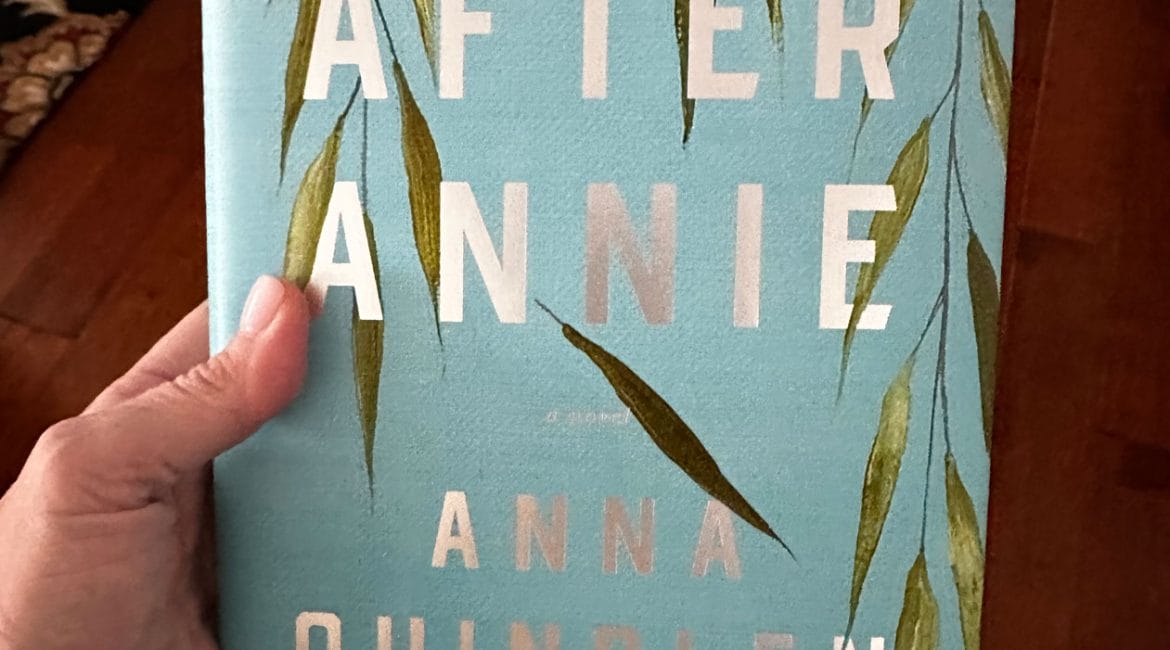Sometimes, it’s rare to stumble upon a novel that captures the raw essence of loss and the painstaking healing journey with as much depth and sensitivity as Anna Quindlen’s “After Annie.”
How it Related to Me
At first glance, the book’s premise hit close to home for me, given my personal history with aneurysms. The central event of Annie’s sudden passing from an aneurysm, leaving behind a family in disarray, mirrored aspects of my own life in ways that initially made me hesitant to continue. However, I pressed on, drawn by Quindlen’s reputation for crafting compelling narratives that explore the intricacies of human emotions and relationships.
About After Annie
The story unfolds through the lives of those closest to Annie: her husband Bill, her best friend Annemarie, and her daughter Ali. Although Annie had four children, the reader follows Ali, her oldest daughter.
Quindlen masterfully navigates the turbulent waters of grief, illustrating how each character is engulfed by the void left by Annie’s absence. In the immediate aftermath of the tragedy, we see a family fractured, struggling to make sense of a world that has been irrevocably altered.
Bill’s pain is palpable, a father grappling with the enormity of his loss while trying to anchor his children in a semblance of normalcy. At first, he tries to stay away as much as possible, delving himself into his work. But when the school psychologist told him to try to talk about Annie with the children as much as possible, things start to change.
Annemarie, Annie’s best friend from childhood, confronts the fragility of life and the importance of cherishing moments with loved ones. Annie saved Annemarie from addiction and after Annie dies, Annemarie starts to go back to using but realizes that Annie would “kill her” if she went back.
Ali takes on the responsibility of the mom, taking care of her brothers, making dinner, etc. But after going to the school psychologist she starts to comes to terms with the loss of her mother.
What I thought…
What makes “After Annie” a remarkable read is not just its exploration of loss, but its tender portrayal of the slow, often imperceptible, steps toward acceptance and healing. Quindlen doesn’t shy away from the messiness of grief—the anger, the regret, the unanswerable questions—but she also illuminates the pathways of love and friendship that can guide us through the darkest times. The characters’ evolution over the course of the year demonstrates that while Annie will forever be a pivotal part of their lives, the act of moving forward does not equate to forgetting.
Anna Quindlen has woven a narrative that is as much about heartache as it is about hope. Her nuanced characters and insightful observations on the human condition offer readers a mirror to their own experiences of love, loss, and the enduring bonds that connect us. “After Annie” is a testament to the strength found in vulnerability, the comfort found in companionship, and the transformative power of love.
For anyone who has faced the specter of loss or navigated the complexities of grieving, this book resonates with a profound truth: healing is not a destination but a journey marked by moments of pain and beauty, despair and hope.
I recommend “After Annie” to those seeking a story that captures the essence of what it means to rebuild in the wake of unimaginable loss. It is a wonderful exploration of the human spirit’s capacity to endure, adapt, and ultimately, find a way to carry on.

